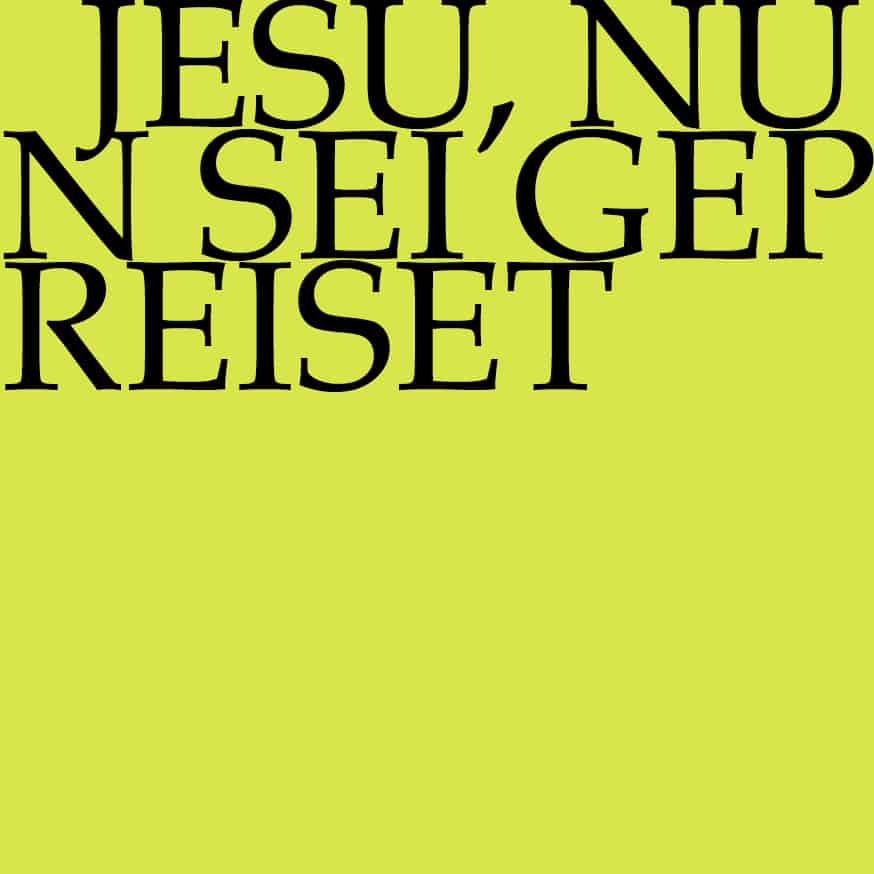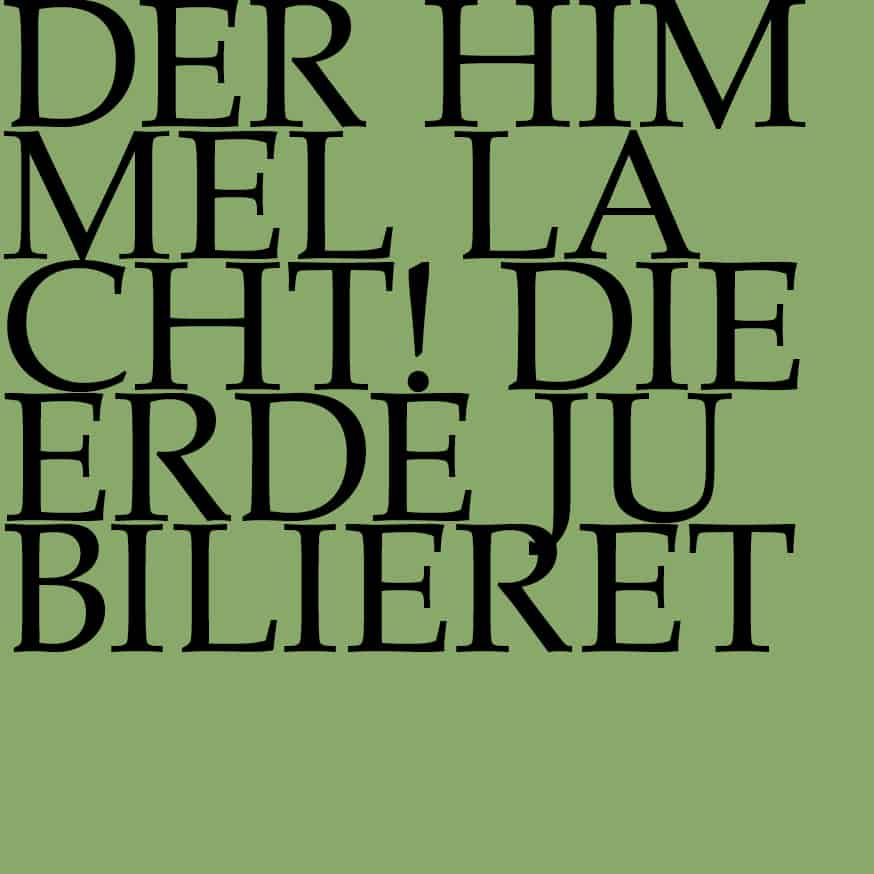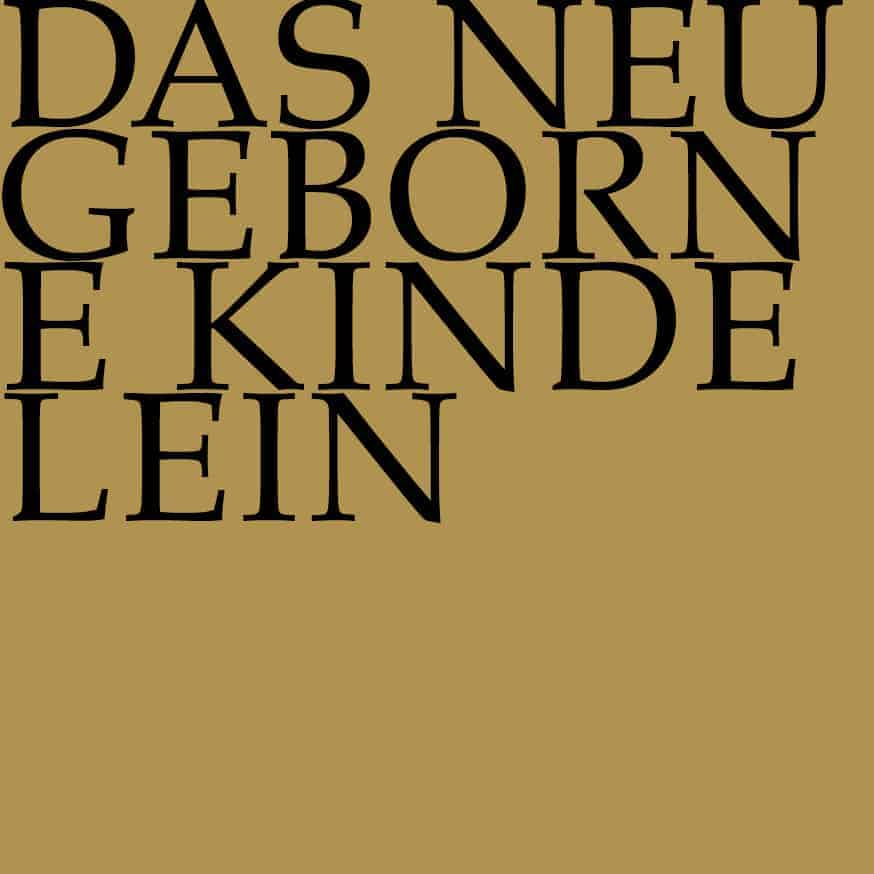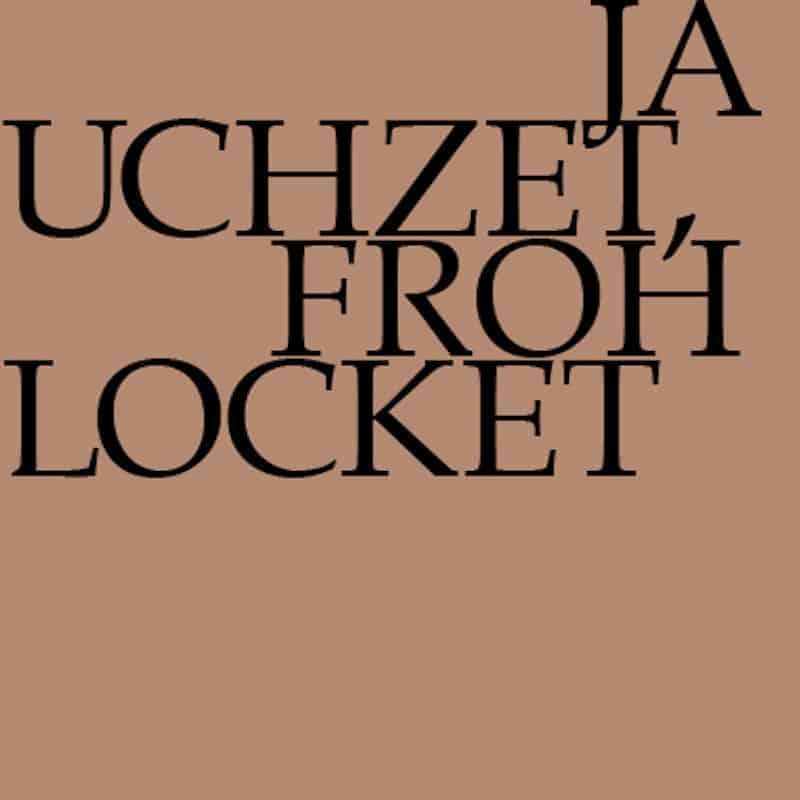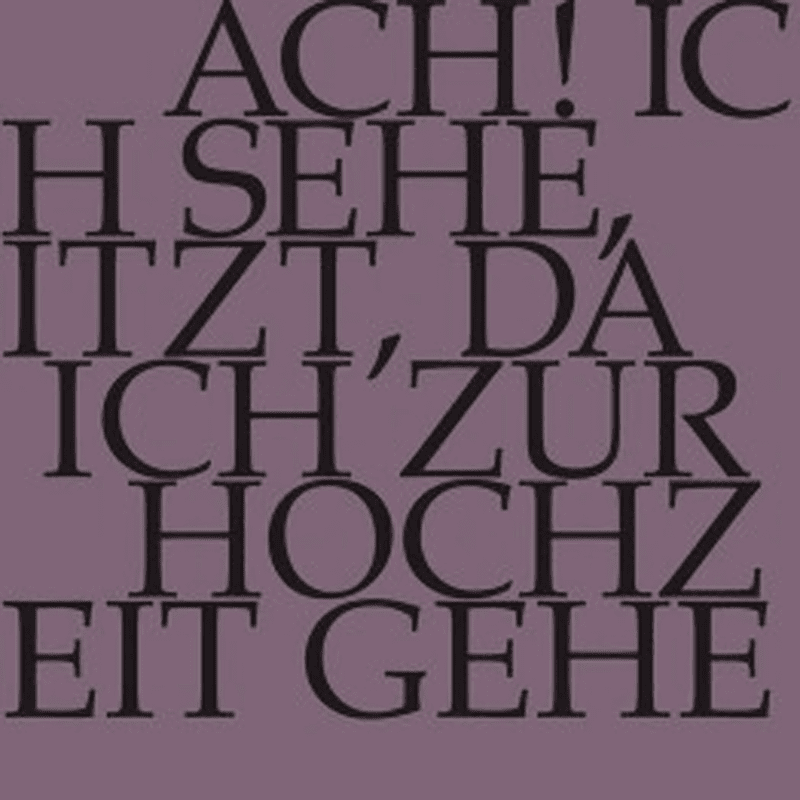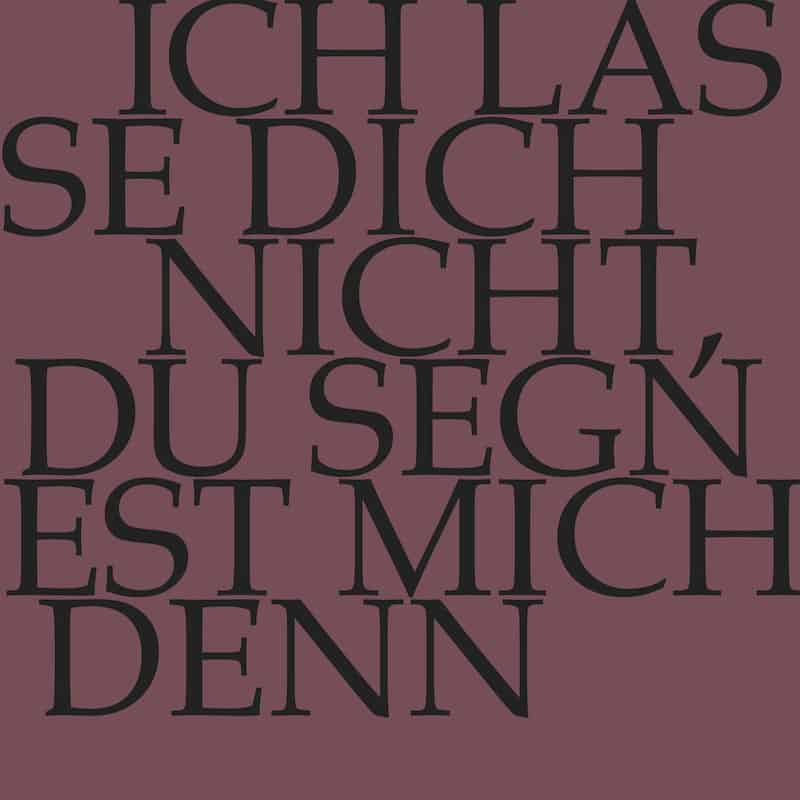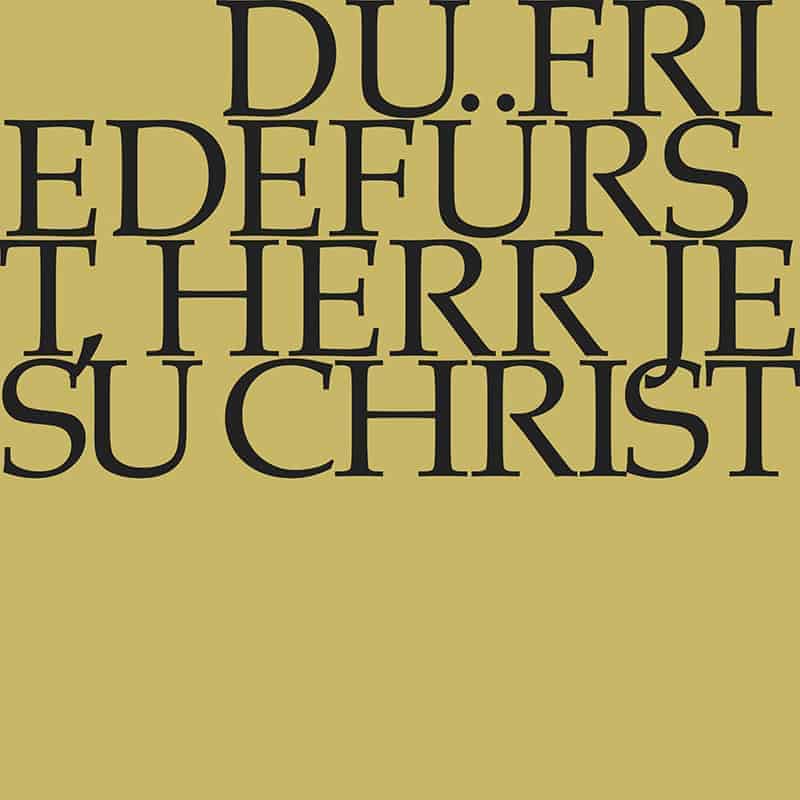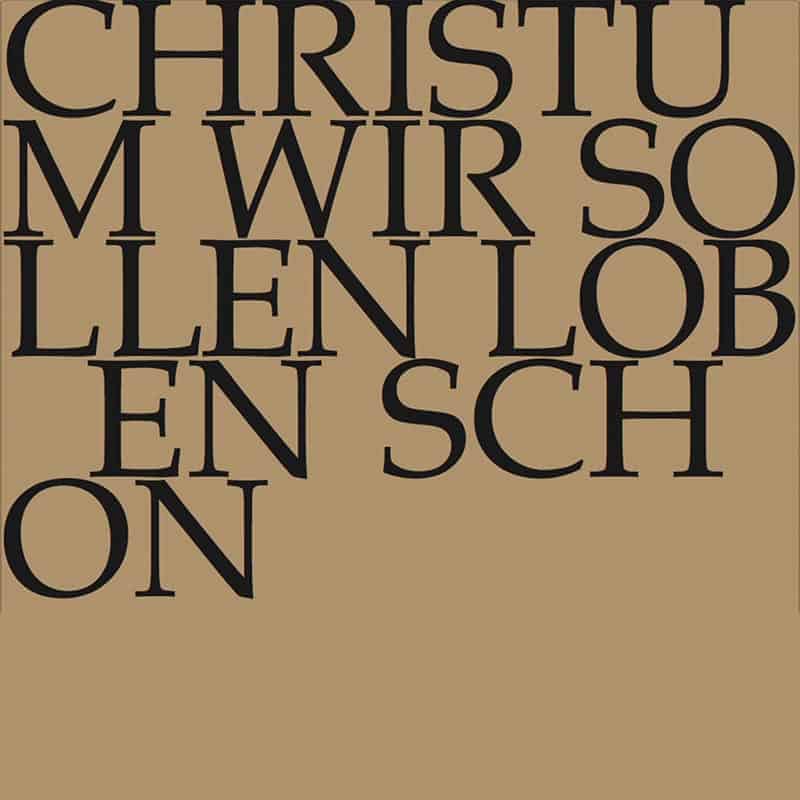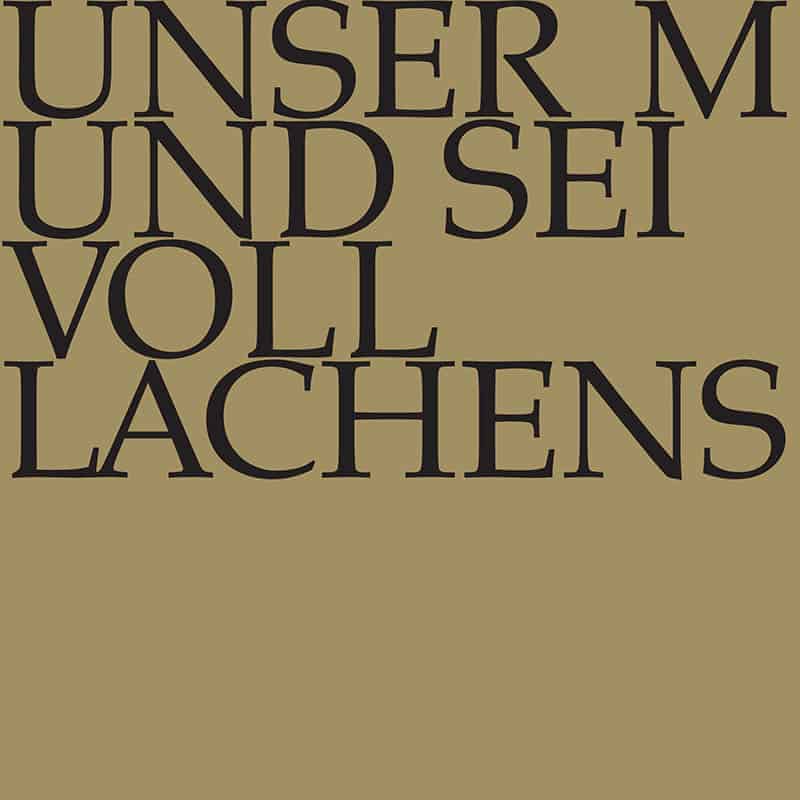(Jesus, be now exalted) for soprano, alto, tenor and bass, vocal ensemble, trumpet I–III, timpani, oboe I–III, strings and basso continuo
Archives
Der Himmel lacht! Die Erde jubilieret
(The heavens laugh! The earth doth ring with glory) for soprano, tenor und bass, vocal ensemble, trumpet I–III, timpani, oboe, taille, strings and basso continuo
Das neugeborne Kindelein
(The newly born, the tiny childment they will cast you) for soprano, alto, tenor and bass; vocal ensemble, recorder I-III, oboe I+II, taille, strings and basso continuo
Jauchzet, frohlocket, auf, preiset die Tage
(Triumph, rejoicing, rise, praising these days now) for alto, tenor and bass, transverse flute I+II, oboe I+II, trumpet I-III, timpani, strings and basso continuo
Ach! Ich sehe, itzt, da ich zur Hochzeit gehe
(Ah! I see now, As I go to join the marriage) for soprano, alto, tenor and bass, flauto, corno da tirarsi, strings and basso continuo Cantata BWV 162 belongs to the “Evangelisches Andachts-Opfer” cycle of texts written by Salomo Franck in Weimar in 1715; whether Bach composed and performed the related cantata in 1715 or … Read More
Ich lasse dich nicht, du segnest mich denn
(I’ll not let thee go, thou must bless me first) for tenor and bass, vocal ensemble (closing chorale), transverse flute, oboe d’amore, strings and basso continuo
Du Friedefürst, Herr Jesu Christ
(Thou Prince of peace, Lord Jesus Christ) for soprano, alto, tenor and bass, vocal ensemble, corno, oboe d’amore I+II, strings and basso continuo Composed in 1724, cantata BWV 116 is the part of Bach’s cantata cycle dedicated to the twentyfifth Sunday after Trinity. The work’s timeless entreaty for peace and deliverance from penury and retribution … Read More
Christum wir sollen loben schon
(To Christ we should sing praises now) for soprano, alto, tenor and bass, vocal ensemble, zink, trombone I-III, oboe d’ amore, strings and basso continuo Written for the Second Day of Christmas in 1724, the cantata “Christum wir sollen loben schon” (To Christ we should sing praises now) is distinguished by a stately tone and … Read More
Unser Mund sei voll Lachens
(Make our mouth full with laughter) for soprano, alto, tenor and bass, vocal ensemble, trumpet I–III, timpani, transverse flute I+II, oboe I+II+III (oboe d‘amore, oboe da caccia), bassoon and strings Composed for Christmas Day in 1725 to an unconventional libretto by Georg Christian Lehms, cantata BWV 110 explores three bible verses in three successive arias … Read More


